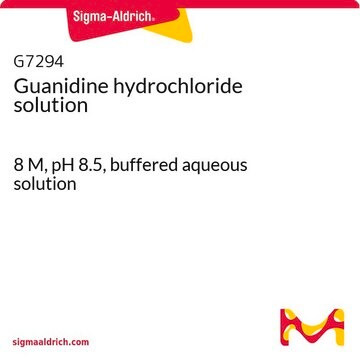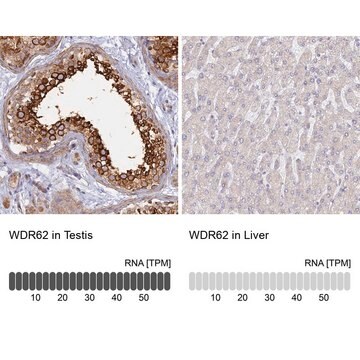W3269
Monoclonal Anti-WDR62 antibody produced in mouse
~1.0 mg/mL, clone 3G8, purified immunoglobulin, buffered aqueous solution
Synonym(s):
Anti-C19orf14, Anti-WD repeat domain 62
About This Item
Recommended Products
biological source
mouse
Quality Level
conjugate
unconjugated
antibody form
purified immunoglobulin
antibody product type
primary antibodies
clone
3G8, monoclonal
form
buffered aqueous solution
mol wt
antigen ~170 kDa
species reactivity
human
concentration
~1.0 mg/mL
technique(s)
indirect immunofluorescence: 0.5-1 μg/mL using HEK-293T cells over expressing human WDR62
western blot: 0.5-1 μg/mL using HEK-293T cells over expressing human WDR62
isotype
IgG2a
UniProt accession no.
shipped in
dry ice
storage temp.
−20°C
target post-translational modification
unmodified
Gene Information
human ... WDR62(284403)
General description
Application
Biochem/physiol Actions
Target description
Physical form
Disclaimer
Not finding the right product?
Try our Product Selector Tool.
Storage Class Code
12 - Non Combustible Liquids
WGK
WGK 1
Flash Point(F)
Not applicable
Flash Point(C)
Not applicable
Certificates of Analysis (COA)
Search for Certificates of Analysis (COA) by entering the products Lot/Batch Number. Lot and Batch Numbers can be found on a product’s label following the words ‘Lot’ or ‘Batch’.
Already Own This Product?
Find documentation for the products that you have recently purchased in the Document Library.
Our team of scientists has experience in all areas of research including Life Science, Material Science, Chemical Synthesis, Chromatography, Analytical and many others.
Contact Technical Service







